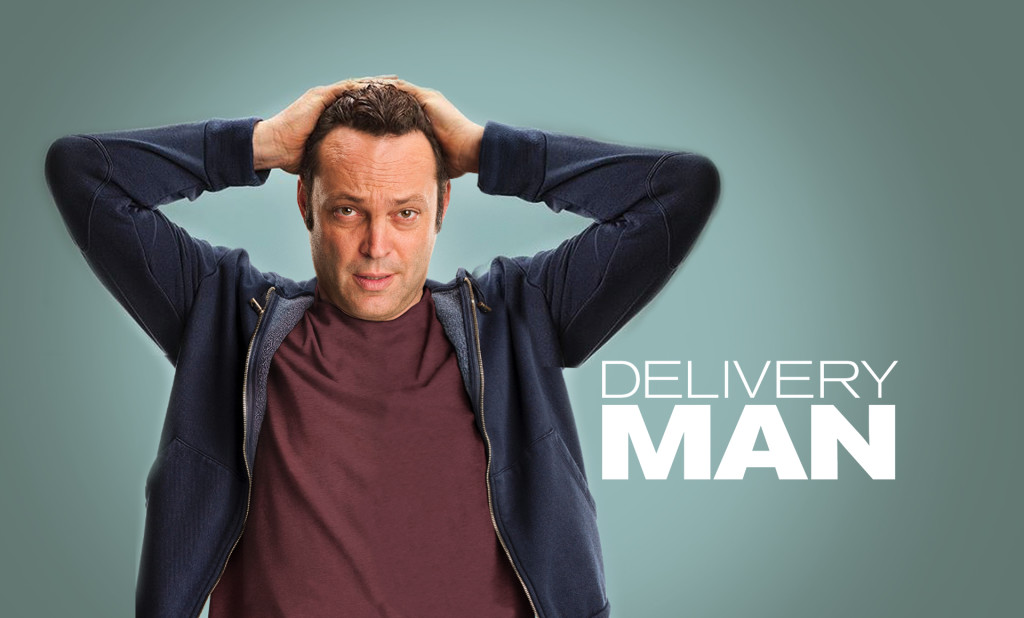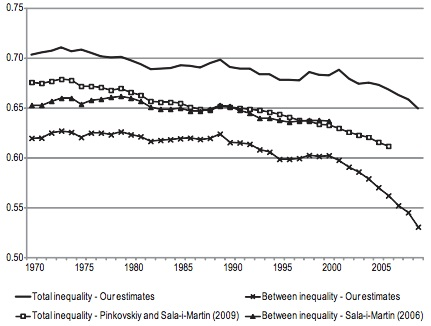Last year, I posted a piece at The Slow Hunch on Black Friday. Does the post-Thanksgiving binge represent the most base form of materialism? Maybe not (at least not completely). Check out my post to see why.
Month: November 2013
A New Facet of the Pro-Life Movement: The Fatherhood Movement
This post was my first introduction to The Fatherhood Movement. In it, Alana Newman describes handing out fliers outside of screenings of The Deliveryman (Vince Foster comedy about a donor data of over 500 kids) because “We can’t all be scared, stay at home and never do the dirty work of questioning this industry.”
I clicked on over to her section on The Fatherhood Movement to learn more, and the first two paragraphs read:
I believe in Fatherhood. I believe poverty will be eliminated when the raw energy and genius of every adult man is channeled to serve and care for his children and community. I believe we need to lift up male strengths and good masculine character as assets in our quest for joy, health and wealth. I believe every child needs his or her father, but first we have to teach boys how to become men that are prepared for such a responsibility and can deliver on his role.
The absence of my own biological father in my life was crushing. The associated behavioral problems I exhibited could easily have been lethal. And I hurt many people on my path to where I am now.
There aren’t a lot of donor-conceived children who are old enough to really speak out about their experiences and impressions. And yet it seems that their voices should be the voices that matter the most, right? I don’t yet know how widespread the feeling of being deprived a father is, but it’s an issue I’ll be paying attention to. If I recall, it dovetails with the Catholic belief that children have a right to parents.
“The True Patron of This Holiday Feast”
Happy Thanksgiving!
Good News, Pope Francis
The media has exploded over Pope Francis’ recent apostolic exhortation. In it, he denounced social and economic inequality, which he declared are “the result of ideologies which defend the absolute autonomy of the marketplace and financial speculation” and “trickle-down theories.”[ref]Economist Thomas Sowell has claimed, “No such theory [i.e. trickle-down] has been found in even the most voluminous and learned histories of economic theories…Yet this non-existent theory has become the object of denunciations from the pages of the New York Times and the Washington Post to the political arena…It is a classic example of arguing against a caricature instead of confronting the argument actually made.” (Sowell, “Trickle-Down” Theory and “Tax Cuts for the Rich”. Stanford: Hoover Institution Press, 2012, 1-2.)[/ref] The media hailed it as an anti-capitalist proclamation, while virtually ignoring other important factors like his attack on abortion.[ref]”Among the vulnerable for whom the Church wishes to care with particular love and concern are unborn children, the most defenceless and innocent among us. Nowadays efforts are made to deny them their human dignity and to do with them whatever one pleases, taking their lives and passing laws preventing anyone from standing in the way of this. Frequently, as a way of ridiculing the Church’s effort to defend their lives, attempts are made to present her position as ideological, obscurantist and conservative. Yet this defence of unborn life is closely linked to the defence of each and every other human right. It involves the conviction that a human being is always sacred and inviolable, in any situation and at every stage of development. Human beings are ends in themselves and never a means of resolving other problems. Once this conviction disappears, so do solid and lasting foundations for the defence of human rights, which would always be subject to the passing whims of the powers that be. Reason alone is sufficient to recognize the inviolable value of each single human life, but if we also look at the issue from the standpoint of faith, “every violation of the personal dignity of the human being cries out in vengeance to God and is an offence against the creator of the individual”. Precisely because this involves the internal consistency of our message about the value of the human person, the Church cannot be expected to change her position on this question. I want to be completely honest in this regard. This is not something subject to alleged reforms or “modernizations”. It is not “progressive” to try to resolve problems by eliminating a human life. On the other hand, it is also true that we have done little to adequately accompany women in very difficult situations, where abortion appears as a quick solution to their profound anguish, especially when the life developing within them is the result of rape or a situation of extreme poverty. Who can remain unmoved before such painful situations?” (#213-214)[/ref] While some are seeing Francis’ remarks as radical, it is virtually the same message found in, say, the exhortations of John XXIII (1961) or Leo XIII (1891). This just reinforces Nathaniel’s point in his post “Meet the New Catholicism, Same as the Old Catholicism.”
But I have some good news for Pope Francis and the media: things have been getting better for some time. The world isn’t quite on its way to hell in a handbasket. Furthermore, it was the “autonomy of the marketplace” that achieved one of the major Millennium Development Goals of halving global poverty five years early. And as I’ve noted before, global inequality is actually decreasing. A brand new study supports past research by demonstrating that–though inequality is still high and increasing within countries (not just in America)–global inequality has seen an unprecedented decline.
(Above graph provided by GMU’s Robin Hanson)
This is not to say that all is well. There is much, much more to be done. But these are positive trends; trends that caused one journalist to declare 2012 (at the dawn of 2013) the best year ever. We have seen incredible progress over the past couple centuries. If we want to address social ills like those Pope Francis spoke of, we should look to those policies (and yes, ideologies) that have made these positive trends possible.
Funny Maps, American Ignorance, and Common Humanity
A series of humorous posts of clueless individuals trying to fill in maps has been making the rounds recently. The first one I saw was an Australian trying to fill in a map of US states.

Next up, BuzzFeed asked a bunch of Brits to try the same task in honor of the Thanksgiving holiday. Their results weren’t any better.


Then there’s the BoredPanda version which takes the other approach by asking a bunch of Americans to try and label European countries with predictable results.
GQ: Quit Watching Porn

Given the pervasiveness of porn in our culture, I figured I’d be one of a lone voice of marginalized weirdos for stating that it’s bad and people should knock it off. And yet, on the heels of Joseph Gordon-Levitt’s “Don Jon”, GQ has an article called 10 Reasons Why You Should Quit Watching Porn. There aren’t a lot of new scientific details in the article, and all the reasons come down to mostly “it’s bad for your sex life.” Perhaps not the noblest of reasons, but perfectly valid and quite pragmatic. It’s nice to see this issue dragged into the spotlight of mainstream attention.
The Pope Preaches Fairness, Is A Radical
 Pope Francis’ recent “apostolic exhortation” criticizes certain aspects of modern society, championing equality and policies that guarantee opportunity and basic welfare.
Pope Francis’ recent “apostolic exhortation” criticizes certain aspects of modern society, championing equality and policies that guarantee opportunity and basic welfare.
Naturally, the Pope’s words are being and will be co-opted by the left as a long-awaited attack against conservative ideals and a tacit approval of redistributive policies, not excluding socialist positions.
While I can’t, myself, read the Pope’s document (my guess is because it hasn’t been translated to English), reading what’s being said in the news about it leads me to believe Pope Francis is not sanctioning socialism or anything like it, but rather calling for society to back away from “idolatry” in the form of obsession with wealth and status, which isn’t what I would consider to be an earth-shattering pronouncement. He asks for people to make giving to those less fortunate than themselves a priority, and for politicians to ensure everyone in their society has access to what most people around the world would consider to be basic necessities (education, employment and health care).
Perhaps the most potentially divisive comment made in the exhortation is, ironically, the Pope’s call for closing the inequality gap. I’m not sure what solutions he offers for fixing that problem, but it’s perhaps what the Pope points to as a cause for the gap’s existence that is the most interesting:
“As long as the problems of the poor are not radically resolved by rejecting the absolute autonomy of markets and financial speculation and by attacking the structural causes of inequality, no solution will be found for the world’s problems or, for that matter, to any problems,” he wrote.
I don’t think many people are seriously arguing for absolutely unregulated markets, so I’m not sure what this statement is meant to accomplish, nor why it is (at least, going from the comments sections on the various outlets reporting this) being interpreted by leftists as a socialist call-to-arms and a radical departure from everyday Christian culture which, with its emphasis on personal liberty, responsibility and autonomy, is in their minds a spiteful dismissal of or, at best, indifference to the plight of the disenfranchised.
While I applaud Pope Francis’ for attempting to place emphasis on helping the less fortunate and shedding the pursuit of wealth at the expense of others, I’m more interested in learning what solutions he proposes to addressing what are, in fact, human failings, not unique to any corner of any political spectrum.
The Family that Didn’t Tip Gay Waiter? Hoax.
Remember that story about the family that left a nasty note about being gay instead of a tip? Yeah, apparently it didn’t happen. It’s too early to tell what the real story is conclusively, but I won’t be surprised either way. Bigotry happens. So do exploitative hoaxes.
After-Birth Abortion

A couple of bio-ethicists have recently made the case for after-birth abortion. Again. This isn’t news. The pro-choice logic has obviously pointed that way for years, and Planned Parenthood spokespersons and great pro-choice thinkers have been more than happy to advocate infanticide for decades. The only thing that’s new this time around is that a major outlet like Slate seems willing to talk about it.
(Side note: why is it that every time I hear about bio-ethicists it’s because they’re advocating new and exciting rationalizations for homicide? Is that just the career choice of well-adjusted homicidal maniacs these days? Is there an aptitude test somewhere that says: “Well, you can either become a mass-murderer or–to avoid vigorous exercise and possible jail time–you can just write long-winded treatises in favor of pushing the legal envelope on killing humans beings.”)
In any case, William Saletan is doing just that: taking the issue seriously. Saletan is, from what I can tell, a dissident pro-choice voice. He supports legalized abortion, but is highly critical of the arguments deployed by the largest pro-choice institutions. And, as he illustrates, this new modest proposal for infanticide (sadly it is not satire) causes problems for the pro-choice side by directly calling into question many of their key assumptions, such as:
- The moral significance of fetal development is arbitrary.
- Prior to personhood, human life has no moral claims on us.
- Any burden on the woman outweighs the value of the child.
- The value of life depends on choice.
- Discovery of a serious defect is grounds for termination.
The list reads like a pro-life critique of the current pro-choice rationales, and I think it’s going to be another example (partial-birth abortion was the first, no matter what Saletan thinks of the term) where it’s pro-choice extremism that really does more to damage the movement than pro-life activism ever could. It’s taken a long, long, long time but–I hope–eventually the American people will come to see abortion for what it really is. (Which, not to leave anyone on a cliffhanger, is simply the further exploitation of women as sexual objects.)
Oldest Buddhist Shrine Uncovered in Nepal
Archaeologists have excavated a Buddhist shrine in Nepal dating back to about 550 B.C. This discovery would push the birth of the Buddha back over a century earlier than scholars currently accept.

National Geographic has the details.



